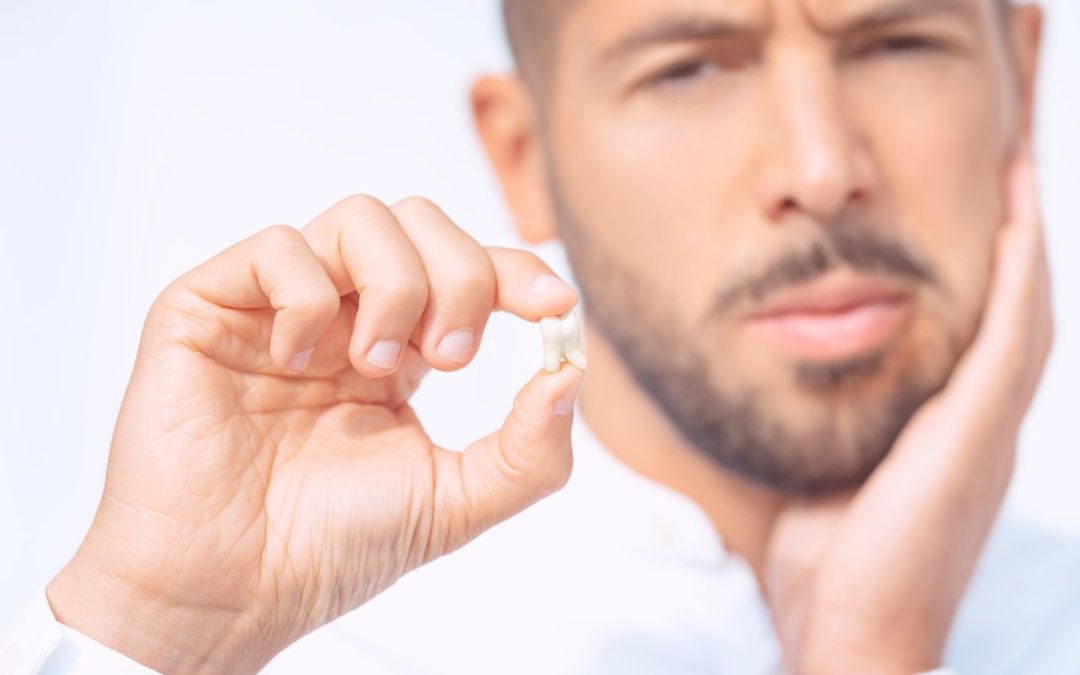Dental emergencies can strike when you least expect them, causing pain, stress, and uncertainty.
Whether it’s a sudden toothache or a chipped tooth, knowing how to respond can make all the difference in preserving your smile.
As your trusted emergency dentist in Edmonton, we’re here to help you stay calm and take the right steps when time is of the essence.
Here are the top five dental emergencies and what you can do before heading to the dentist for expert care.
1. Knocked Out Tooth
A knocked-out tooth, or dental avulsion, occurs when a tooth is completely dislodged from its socket due to trauma, such as an accident or sports injury.
This condition is considered a dental emergency because the tooth’s survival depends on how quickly and properly it is handled.
Ignoring this emergency can lead to permanent tooth loss, the need for implants or dentures, and even complications like infection.
What to Do
- If the tooth is clean, gently rinse it with water—avoid scrubbing it.
- Try to place it back into the socket carefully, keeping it moist with saliva.
- If reinsertion isn’t possible, store the tooth in milk or a tooth preservation solution and contact your emergency dentist in Edmonton immediately for urgent care.
2. Severe Toothache
A severe toothache is intense, persistent pain in or around a tooth, often signaling an underlying issue like deep decay, an abscess, or gum infection.
This type of pain can arise suddenly and worsen over time, disrupting daily life.
It’s a dental emergency because it may indicate an infection that could spread or lead to more serious complications if left untreated.
What to Do
- Rinse your mouth with warm salt water to help reduce inflammation and dislodge any debris.
- Use over-the-counter pain relief and a cold compress on your cheek to ease discomfort.
- Schedule an appointment with your dentist as soon as possible to identify and address the root cause of the pain.
3. Chipped or Broken Tooth
A chipped or broken tooth occurs when part of the tooth’s structure is fractured, often due to biting something hard, accidents, or sports injuries.
This can leave the inner layers of the tooth exposed, making it vulnerable to pain, sensitivity, and infection.
It’s a dental emergency because timely care is essential to prevent further damage and restore the tooth.
What to Do
- Rinse your mouth with warm water to clean the area, and if there’s bleeding, gently apply gauze to stop it.
- Save any broken pieces, if possible, and use dental wax or sugarless gum to cover any sharp edges.
- Contact your dentist promptly to assess the damage and discuss treatment options.
4. Dental Abscess
A dental abscess is a pocket of pus caused by a bacterial infection, typically forming at the root of a tooth or in the surrounding gums.
It can result from untreated decay, gum disease, or trauma. This is a serious dental emergency, as the infection can spread to other parts of the body if left untreated.
What to Do
- Rinse your mouth with warm salt water several times a day to help reduce swelling and draw out some of the infection.
- Avoid pressing on the abscess, and use over-the-counter pain relievers to manage discomfort.
- Contact your dentist immediately for treatment, as abscesses often require drainage and antibiotics.
5. Lost Filling or Crown
A lost filling or crown occurs when a restoration becomes loose or falls out, often due to decay weakening the tooth or the adhesive bond.
This can expose sensitive areas of the tooth, causing pain, discomfort, or further damage.
It’s a dental emergency because the underlying tooth is left unprotected, increasing the risk of complications.
What to Do
- Keep the area clean by gently rinsing your mouth with warm water.
- If you have the crown, try to temporarily reattach it with dental cement or place sugarless gum over the exposed tooth to protect it.
- Reach out to your dentist promptly to restore the filling or crown and safeguard your tooth.
Preventing Dental Emergencies

While not all dental emergencies can be avoided, taking proactive steps can significantly lower your risk.
By practicing good oral care habits and staying mindful of potential risks, you can protect your smile and minimize the chance of unexpected issues.
- Brush and floss daily to maintain healthy teeth and gums.
- Wear a mouthguard during sports or high-impact activities.
- Avoid chewing hard foods, ice, or non-food items like pens.
- Schedule regular dental checkups to catch problems early.
Staying prepared and informed is key to safeguarding your dental health.
Small steps today can save you from bigger problems down the road!
When to Call an Emergency Dentist
Knowing when to seek urgent dental care can make a big difference in protecting your oral health.
If home remedies or over-the-counter treatments aren’t helping or the issue worsens, it’s time to reach out for professional care.
- Persistent pain that doesn’t improve with medication or home care.
- Swelling or bleeding that doesn’t stop or continues to spread.
- Difficulty eating, speaking, or functioning normally due to dental issues.
If something feels off or your symptoms are escalating, don’t wait.
Prompt attention can prevent complications and get you back to feeling your best.
Trust Oxford Dental for Emergency Dental Care in Edmonton
When dental emergencies strike, you need care fast.
At Oxford Dental, you can walk in during our open hours and get immediate attention from our skilled team.
Have questions or need more details?
Get in touch or stop by—we’re always happy to help!

